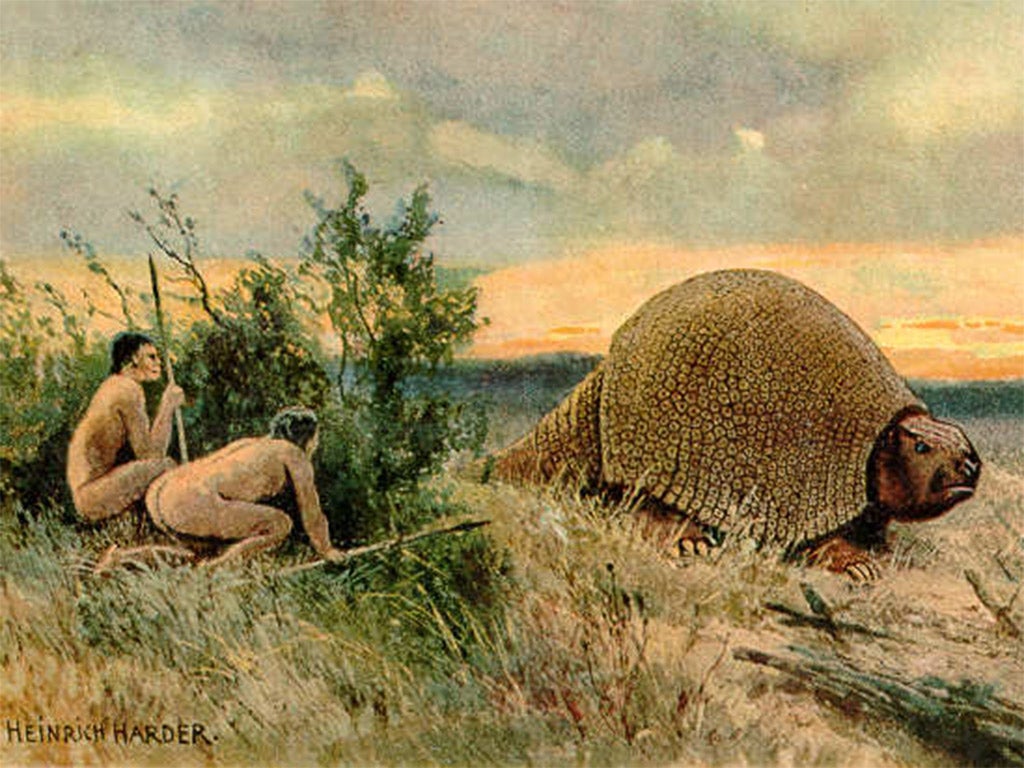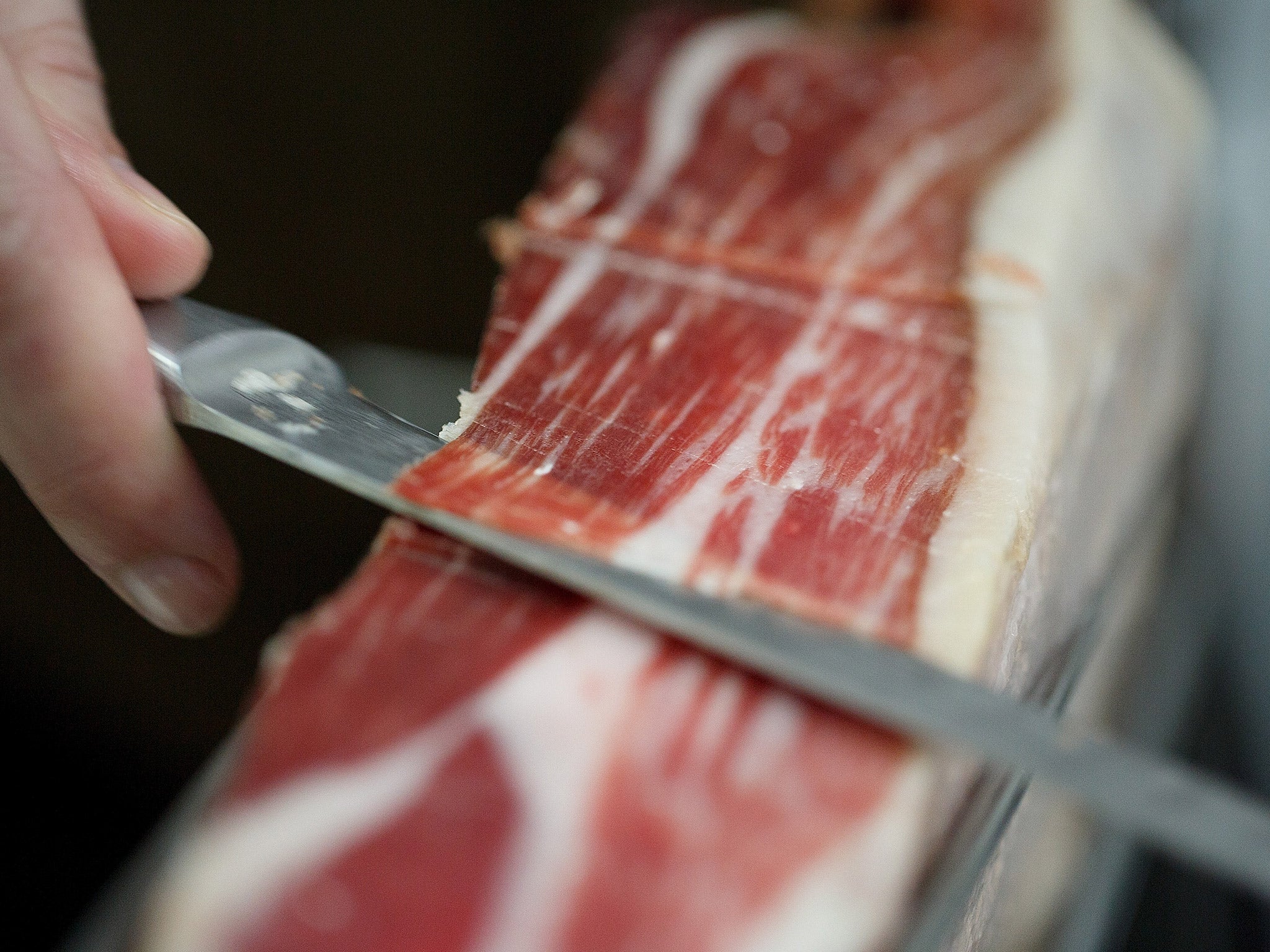Stone Age: Development of simple cooking tools 'could have allowed humans to develop into world's first intelligent species'
Study claims the tools could have helped humans evolve into the world’s first truly intelligent species capable of the higher consciousness needed for cultural development

The Stone Age equivalent of a food processor could have triggered the most momentous changes in human evolution, allowing a plant-eating ape with a big jaw and small brain to become a large-brained, small-faced human capable to intelligent thought and speech, scientists have suggested.
A study has found that using simple stone tools to slice raw meat and crush raw vegetables before chewing on them could have been the “game changer” that allowed humans to evolve into the world’s first truly intelligent species capable of the higher consciousness needed for cultural development.
“One of the innovations that helped to make us human is cutting up and pounding our food…it released selection for big faces and big teeth, which then enabled selection for shorter faces, which were important for speech, and enabled us to grow big brains and have large bodies. We are partly who we are because we chew less,” said Professor Daniel Lieberman of Harvard University in Cambridge, Massachusetts.
Scientists have long argued over what led to the evolution of the relatively large human brain, but whatever it was it coincided with other changes in facial anatomy, namely a transition from a large-toothed, long-muzzled ape to a flat-faced, small-toothed human.
Now researchers have produced evidence that the amount of time and effort spent on chewing raw food was key to this crucial transition in human evolution, and it was the invention of stone-age “food processors” to pre-prepare meat and vegetables, rather than cooking, that became the trigger allowing humans to diverge so dramatically from their ape-like ancestors.
“What we showed is that by processing food, especially meat, before eating it, humans not only decreased the effort needed to chew it, but also chew it much more effectively,” said Katie Zink of Harvard University, and first author of the study published in the journal Nature.

“Eating meat and using stone tool to process food apparently made possible key reductions in the jaws, teeth and chewing muscles that occurred during human evolution,” Dr Zink said.
The nutritional demands of a large brain would require more efficient eating, which has led to the idea that our vegetarian ape ancestors must have evolved into meat eaters. However, although raw meat is nutritionally denser than plant matter, it still requires a lot of chewing if it cannot be first sliced into smaller, bite-size pieces, the scientists said.
“Meat has a lot of nutrients, but it is also elastic. You can think of it as being like a rubber band. So the problem is that we can’t break it down with our flat, low-cusped teeth. But if you slice it up, then you do not need to use your teeth to break it down as much, and you swallow much smaller particles. Cooking makes chewing even easier,” Dr Zink said.
Chimpanzees, the closest living relatives of humans, do eat some meat in their diet but they still spend about half their time chewing on their food and have bigger teeth and jaws and stronger jaw muscles to do the job with much greater force compared to humans.
Some scientists have suggested that cooking was the key technological breakthrough that enabled more efficient food processing, but this only became widespread about 500,000 years ago while the anatomical changes to a flatter-faced, smaller-tooth hominid occurred more than 2 million years ago.
An alternative to cooking would have been to use stone tools to slice meat and pound root vegetables into a more digestible mush. Dr Zink tested the idea by seeing how long it would take volunteers to chew on raw goat, yams, carrots and beets before they were ready to swallow each mouthful – although instead of swallowing they were asked to spit out each masticated morsel onto a tray for analysis.
“What we found was that humans cannot eat raw meat effectively with their low-crested teeth. When you give people raw goat, they chew and chew and chew, and most of the goat is still one big clump – it’s like chewing gum,” said Professor Lieberman, who led the study.
“But once you start processing it mechanically, even just slicing it, the effects on chewing performance are dramatic…we humans have done something really remarkable. We eat even higher-quality foods than chimpanzees, and spend an order of magnitude less time chewing them,” he said.
Join our commenting forum
Join thought-provoking conversations, follow other Independent readers and see their replies
Comments
Bookmark popover
Removed from bookmarks